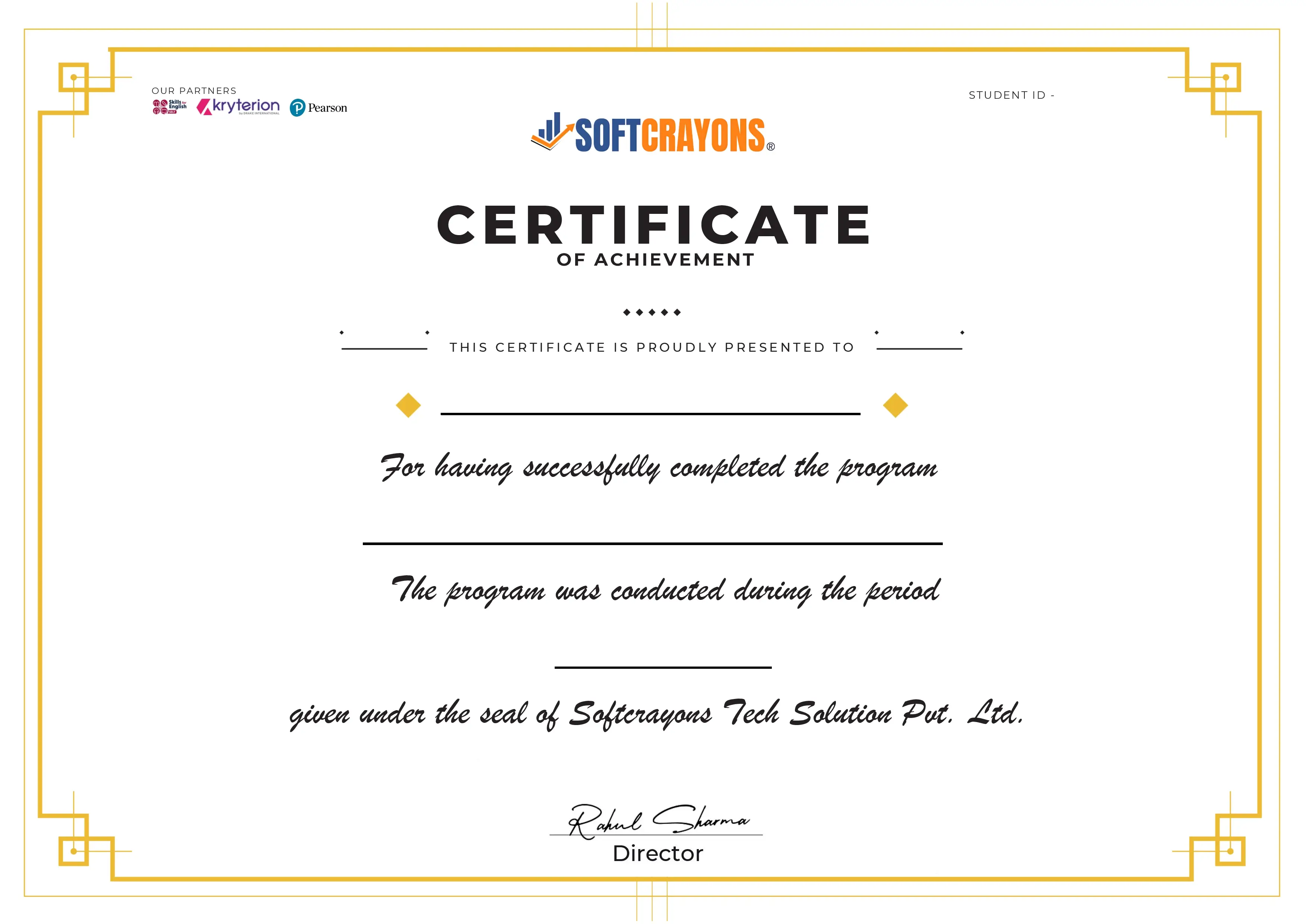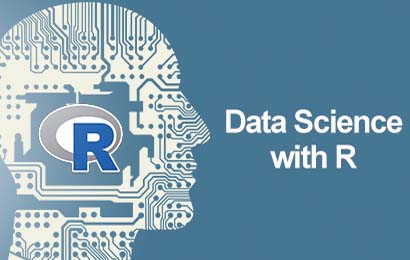MACHINE LEARNING USING R PROGRAMMING
"Innovate. Integrate. Inspire The Future with SoftCrayons"
Learn, Build Skills, Grow Limitlessly. Your IT Career Starts Here.

Course Duration
2 - 3 Months

New Batch
As per schedule hybrid mode

Payment
Flexible One-Time/Installment

Mode
Flexible Offline/Online
Professional Skill Development
Service Details
The Right Way to Learn Machine Learning with R Programming
If you want to get a good job in today's data-driven world, you need to learn Machine learning with R programming. R is a very popular programming language for data science, and machine learning is used in a wide range of applications, from recommendation systems to predictive analytics. Softcrayons has the best training for learning how to use R programming for machine learning. It will help you understand data, build smart models, and make accurate predictions.
Softcrayons teaches people how to use R programming for machine learning in person and online. This lets you learn when it's best for you and at your own pace. Our teachers are experts in their fields and have worked in the real world for years. They make sure that the training is up to date with the latest developments in the field. From day one, we prepare you for the job with hands-on projects, live practice, mock interviews, and case studies from the real world. We are one of the best places to learn about machine learning because we have great facilities and a friendly learning environment.
A Look at the Class:
Our Machine Learning Using R Programming course will teach you everything you need to know about looking at data, making machine learning models, and using them to solve real problems. The course starts with the basics of R programming and statistics. After that, it moves on to supervised and unsupervised machine learning methods. This makes sure that students really understand the ideas and can use them in real life.
What the Course Aims to Accomplish:
- To help you understand the basics of R programming and machine learning
- To show you how to use R libraries to run machine learning algorithms
- To help you become better at solving problems by using data and business cases from the real world
- To help you get ready for a successful career in data science and machine learning
Why You Should Consider a Career in Machine Learning with R
Machine learning is one of the fastest-growing and most lucrative fields of work right now. There is a high demand for people who can use Machine learning Training and analyze data in fields like IT, healthcare, banking, e-commerce, education, and government. If you want to work in machine learning, you'll have interesting job options and the chance to grow your career over time.
What New Hires Should Expect to Earn:
If you learn Machine learning with R programming, you can expect to make between INR 6 and 7 lakhs a year. With more experience, skills, and project exposure, this pay could go up a lot.
What the job involves:
If you are a R machine learning expert, you might have to do the following:
- Collecting, cleaning, and preparing data
- Building and testing machine learning models
- Analyzing data statistically and visualizing it
- Making predictive models to help businesses make decisions
- Working with teams to put solutions based on data into action
Certificate of Training:
When you finish the course, Softcrayons gives you a training certificate that is accepted all over the world. This makes your resume stand out and helps you get hired.
Interviews Practice:
We help you get ready for real job interviews by doing mock interviews and interview prep sessions.
Things to do include live projects and assignments:
As part of their training, we give students real-world Machine learning problems to solve. You can put what you've learned to use, gain real-world experience, and build a strong professional portfolio with these projects.
Why Softcrayons is the Best Institution
People know that Softcrayons is a great place to learn how to use R programming for Machine Learning. This is what sets us apart:
- Trainers who have a lot of experience and are certified in the field
- A full and up-to-date course curriculum
- Different ways to study, both online and offline
- Projects and training that involve doing things 100% help with finding a job
- Modern facilities and a great location to learn
Classes That Go With It...
- The Best Way to Learn Machine Learning with R Programming
- The Best Way to Learn Data Science.
Training Features
Live Interactive Classes
Real-time doubt clearing with expert instructors
Hands-on Projects
Build portfolio with industry-standard projects
Industry Curriculum
Updated syllabus matching current job requirements
Latest Technologies
Learn cutting-edge tools and frameworks
Online & Offline
Flexible learning modes to suit your schedule
Certification Support
Prepare for global IT certifications
LEARNING PATH
Master the Syllabus
Program Highlights

Top Faculty with Certification Facility
Learn from the best, as we impart world-class education with faculty who have rich academic & industry experience

Career Service: Job Readiness
Pursuing your desire to being job-ready through resume building sessions & MasterClass for interview preparation

Choose the way you want to learn
Enhance your learning potential by your choice of printed books, audio books, e-books, videos, and live classrooms

Placement Guarantee
Benefit from our network of over 500+ hiring partners from diverse domains to ensure a smooth job transition after 1 year
Common Questions
Join Our Machine Learning Using R Programming
Guranteed Job Placement Program
- Expert-led training
- Hands-on projects
- Globally recognized certification
Training Certification
🎓 Earn Your Certificate
Successfully complete the training and assessments to receive your official certification. This credential validates your skills and enhances your career opportunities.
Showcase your achievements and share your milestones with your network to inspire others and grow your professional connections.

Interested in this Program? Secure your spot now!
Upcoming Batches
Interested in this Program? Secure your spot now!
What People Say About Us
Himanshu Tyagi
I have completed the course in 3-4 months of DIGITAL MARKETING training under the guidance of Experts Trainers. It was the best experience to learn under them and their teaching methods are out of the box. Best institute for professional courses and a great place. and very cooperative company with helpful staff.
Related Courses


